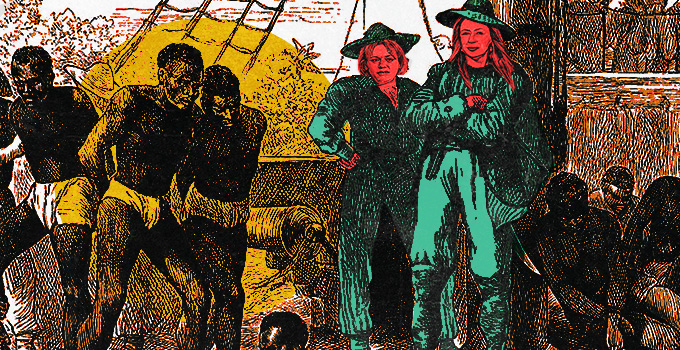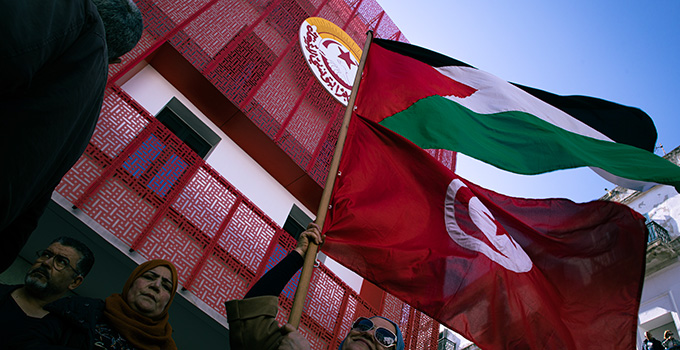
President of the political party Qalb Tounes and candidate in the second round of Tunisia’s 2019 presidential elections, Karoui is not the only one to have benefited from UReputation’s services. Three others were Comorian Azali Assoumani, Ivorian Henri Konan Bédié and Togolese Faure Gnassingbé. When Facebook removed dozens of Tunisian users’ Facebook accounts overnight May 29-30, many Tunisians expressed their astonishment on the social network. Following the intervention of Facebook’s « Trusted Partners » such as I Watch, a number of accounts that had been removed were reactivated. One week later, the Atlantic Council, another Facebook partner, revealed the source behind the deactivated accounts. On June 5, DFRLab’s investigation was made public just hours after the publication of Facebook’s intriguing « Coordinated Inauthentic Behavior Report ».
Disinformation campaigns
The report identifies suspicious activities of a very particular kind: groups including a large number of fake accounts and misleading pages that relay false information. The report also takes into account governmental and foreign interference. It details the removal of 446 pages, 182 Facebook accounts, 96 groups, 60 events and 209 Instagram accounts, the majority of which were fake accounts linked to the public relations firm UReputation. The investigation undertaken by the Atlantic Council’s DFRLab exposed the politicians who benefited from this campaign, including Nabil Karoui. Nor was this the first time that the founder of Qalb Tounes, Nessma TV and the association Khalil Tounes used a digital communication agency for operations of disinformation on Facebook. One year ago, in May 2019, Facebook removed more than 250 accounts and pages originating from 13 countries including Tunisia. Behind the operation, Israeli company Archimedes Group. Nawaat was quick to investigate, emphasizing the threat of Israeli interference in Tunisian affairs. Our confreres at Inkyfada favored the hypothesis of an activity that profited Nabil Karoui.
Lotfi Bel Hadj, a motley profile
A search in the National Registry of Institutions led us to the name of that company denounced by the Facebook report and DFRLab’s investigation: UReputation. Its web address is identical to a company carrying the same name on LinkedIn, and to that of the website indicated here. The company describes its activities as follows: « Monitoring, cyber-influence, intelligence and big data analysis influence traditional communication. UReputation sculpts the contours of your digital fingerprint ». Despite its legal status as a « limited liability company » (LLC), we were able to identify the man behind it. Diverse sources in the sector of digital communication and others close to Karoui assured Nawaat that the individual in question is French-Tunisian lobbyist Lotfi Bel Hadj. Bel Hadj’s ties to Africa are not recent. Founder of the group Alternative Carbon which is active in Africa, he also created Greenrock Funds, a Luxembourg-based investment fund. Originally from Seine-Saint-Denis in Paris, he founded the Observatoire économique des banlieues [Economic Observatory of the Suburbs] and has several works to his name, including the essay « Le Bible du Halal » [The Bible of Halal] published in 2015. He also launched the fund Digital Big Brother, probably the incubator for UReputation.
Different media sources evoking Bel Hadj’s interest in Tunisian political life reveal the lobbyists’ unstable and variable appetite: rapprochement with Ennahdha in 2014 and talks with Tahya Tounes in March 2019, before collaboration with Karoui and his party Qalb Tounes later the same year.





Bravo Nawaat ! Ne lâchez pas !
Ce que vous faites pourrait bien en inspirer d’autres.